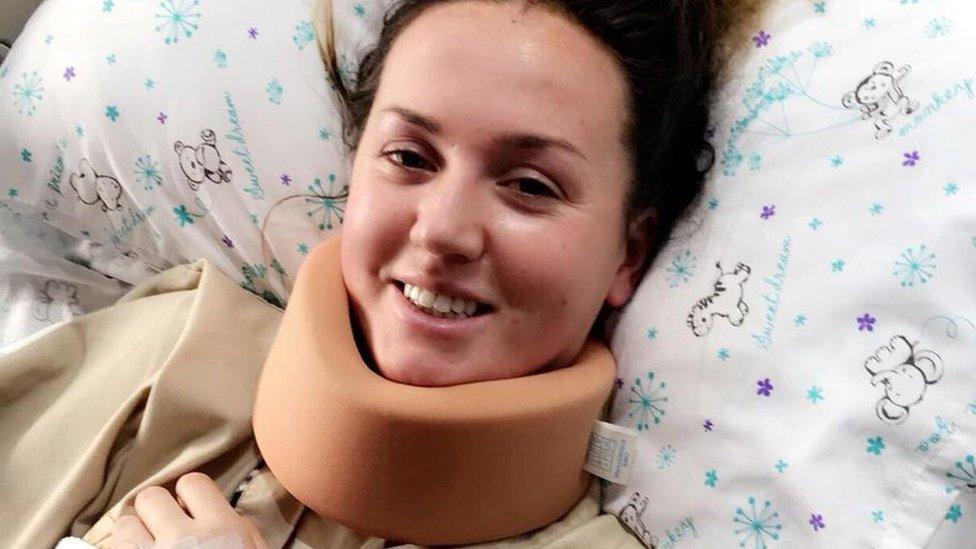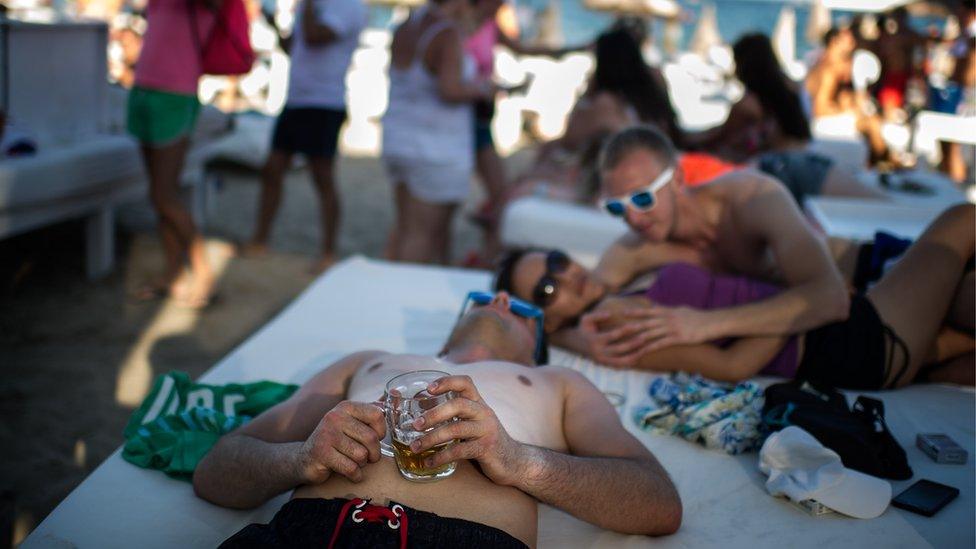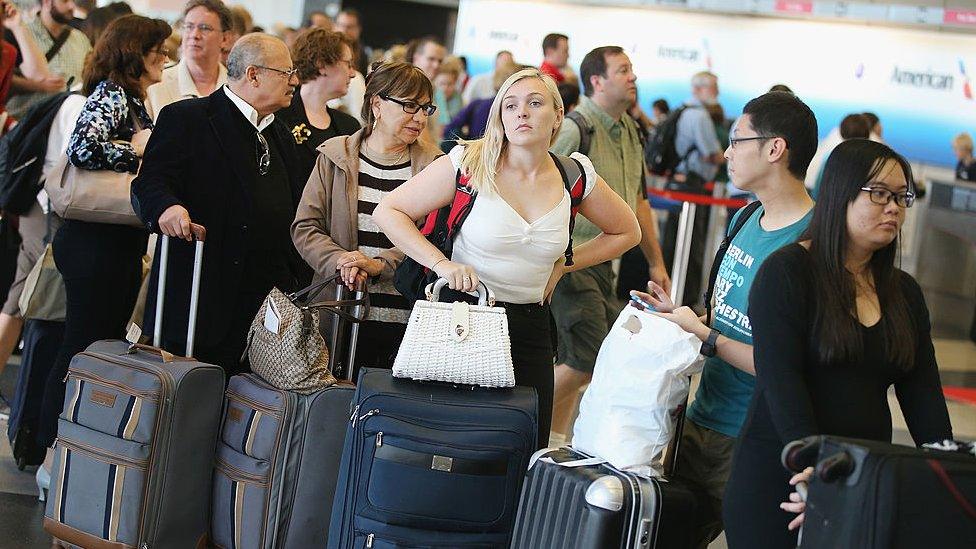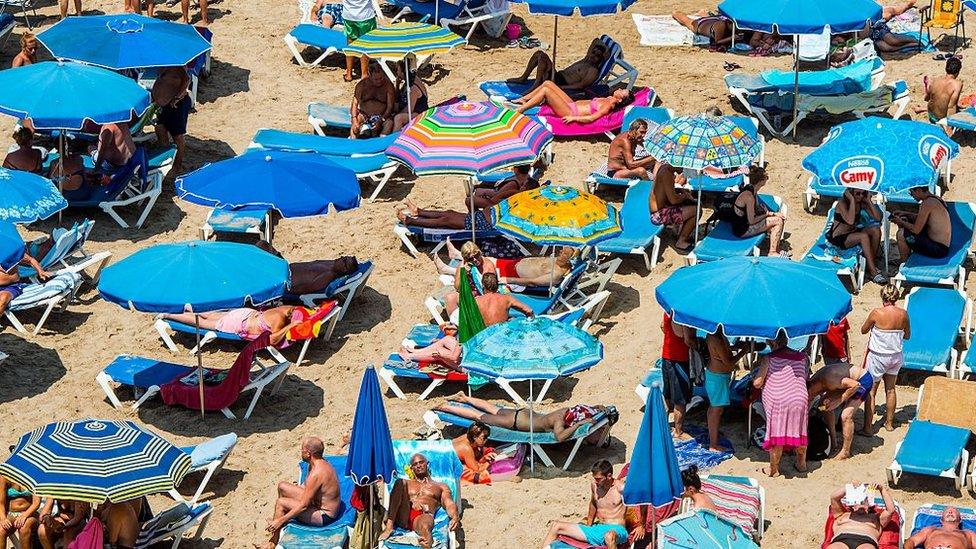How to avoid a travel insurance nightmare
- Published

Kitesurfing is among the activities a standard travel insurance plan might not cover you for
Go to a price comparison site. Type in the country you're going to. Find the cheapest deal. Buy.
If a lot of us were being honest - we'd admit this is how we go about getting travel insurance.
It might save time - but it also means you could find yourself thousands of miles from home, in hospital, with your insurance company refusing to pay out.
Sophie Wilson, 24, was injured when she dived into a swimming pool in Thailand earlier in December and is still not sure if she will walk again.
Travel insurance company Insure and Go said it would not cover costs as the accident happened as a result of "reckless behaviour".
Her family disagrees with that assessment and is trying to raise money for her care and to bring her home.

In a statement Insure and Go says: "It's never nice to tell people that we aren't able to help them, and they're always welcome to discuss or challenge our decisions.
"We do understand that people go on holiday to have fun and enjoy themselves, but we are not able to cover circumstances where the customer has acted in a way that puts themselves at risk. This is clearly stated in the policy terms and conditions."
So how do you try to make sure you don't end up in a nightmare situation? We called up an expert to find out.
Booze

Everyone loves a disco-nap
Let's start with a biggie, shall we?
"Every single travel insurance policy will mention alcohol and drugs," says Graeme Trudgill from the British Insurance Brokers' Association.
"Some policies won't cover claims related to alcohol at all, others will talk about having a 'reasonableness' - so as long as you're in control of your actions than you'll be fine.
"But there does need to be evidence - so was your blood alcohol reading particularly strong, or was there a witness report saying you were completely out of it?
"There have been some terrible incidents where people get drunk and they jump off balconies and have terrible injuries. That's not necessarily going to be covered."
High-risk

You might need extra insurance for winter sports
Another thing you're probably not going to be covered for on a standard policy is any type of "high risk" activity.
"Some activities are considered more hazardous than others," Graeme says.
He lists jet skis, windsurfing, hang gliding, parasailing and horse riding as things that are "easier to insure".
"The things that are harder to do are scuba diving below 30m, kitesurfing, certain types of white-water rafting - things like that.
"There will be insurance providers that can get that cover for you - but you need to check before you go.
"And if you're already abroad and you quite fancy doing a bit of kitesurfing tomorrow, just call your insurance provider back, check in and make sure they can get you cover for that."
Buying early

Just looking at this photo gives us a sinking feeling
Another bit of Graeme's advice is to buy your insurance early - preferably on the day you book you holiday.
"If something happens to you six months before you go, maybe you get an injury of you're called up to jury duty and you can't go - then you need to be able to claim."
He also says some policies will give you protection if the airline you're booked with goes bust.
"It's a really good thing to have because we've seen some airlines go into administration recently."
Cheaper isn't, necessarily, better
This last one goes without saying.
"Overall, my advice is always to make sure you think about your holiday - where you're going and what you're going to be doing - and don't just buy the thing that comes up top on a price comparison site.
"If you're wanting to go on a watersports holiday, for example, then there are plenty of policies out there - but the basic policies that just come up on top of the list won't necessarily include that cover."
Follow Newsbeat on Instagram, external, Facebook, external and Twitter, external.
Listen to Newsbeat live at 12:45 and 17:45 every weekday on BBC Radio 1 and 1Xtra - if you miss us you can listen back here.
- Published17 July 2019

- Published31 October 2018

- Published29 October 2018
